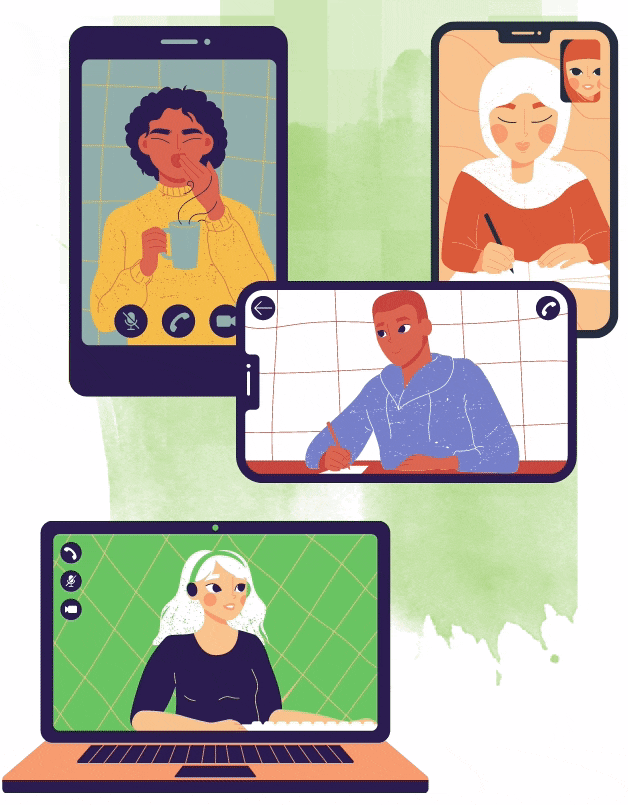Making Good Choices About Using Email, Text, Voice, and Apps with Clients
Did you know that email and texting are the hottest technology issue on the minds of mental health clinicians across the US? Everywhere we go, most of the curiosity and anxiety is focused on these, the most popular media for communication with clients. And the environment around email and texting in mental health has been rapidly shifting for years.
Enjoy these free articles as an introduction. If you’d like to learn more about this topic, you may enjoy our 3 legal-ethical CE credit hours on affordable, effective tech management on-demand self study course
Smooth and Secure Use of Phone, Text, Email, and Video to Meet Modern Clients Where They Are: Legal-Ethical and Real-World Considerations
Learn more

2024 Sponsor:

TherapyNotes is a behavioral health EMR/EHR that helps you securely manage records, book appointments, write notes, bill, and more. It has earned a recommendation from us for use by mental health professionals. Learn more about TherapyNotes and use code “PCT” to get 2 months of free TherapyNotes software.
*Please note that this offer only applies to brand-new TherapyNotes customers.
Email and HIPAA Compliant Practice: Is It Possible?
Establish the basics of how email fits in to the HIPAA picture. This article features solid resources for you.
Clinicians need to make sure email communications are protected, but “protected” doesn’t always mean what you think it means. Open article→
Three Kinds of Email Security: How to Make an Informed and HIPAA-Aware Choice
Not all email is created equal, but do you know the differences when it comes to security? This easy-to-understand primer on the different types of email available, including our recommendation for the most HIPAA-friendly way to handle email in your practice. Open article→

Therapy Business Line on the Cheap?: HIPAA and “VoIP” Services
Internet phone services have exploded in recent years, and therapists are flocking to use them as low or no cost means for communicating with clients. We not only discuss the HIPAA implications, but we offer a potential workaround to the legal-ethical issues with Internet phone services. Open article→
Clients Have the Right to Receive Unencrypted Emails (and Texts) Under HIPAA
Here is one of the most popular articles in the history of Person-Centered Tech! The 2013 HIPAA Omnibus Rule clarified that clients can request to receive unencrypted emails if first informed of the risks. This doesn’t mean conventional, nonsecure email is unusable though, so read this article and the next one for a fuller picture. We have concern that many therapists find themselves easily pulled in to the idea of a quick and easy fix for the issue of exchanging emails and texts with clients. Open article→

Even Though They Have a Right Under HIPAA To Unencrypted Emails: A Case For Only Using Secure Email and Texting With Clients
Unencrypted emails/texts aren’t the only way to comfortably contact clients. There is a case for putting in the effort to make secure communications work. This article is a follow-up to the previous article and supports consideration of the ethical and legal responsibilities around client safety and confidentiality. Open article→
Texting and HIPAA Compliant Practice—PREMIUM ARTICLE
Unlike most articles, this one is only viewable for Person Centered Tech members or as part of our CE course on email and texting. Texting has become an increasingly popular means of communication for mental health professionals and for our clients as well. This article gets into how texting fits into the HIPAA compliance picture. Open article→
Secure Texting Is Now Cheap and Easy, and It’s Time to Stop Using SMS and iMessage
Just like with email, there are secure and not-so-secure ways to exchange text messages with clients. This article differentiates between classic texting and other methods of messaging, including secure methods, and covers how to decide which to use. Open article→

Professionalism In Engaging With Clients by Email and Text—PREMIUM ARTICLE
Unlike most articles, this one is only viewable for Person Centered Tech members or as part of our CE course on email and texting. The use of language and expression in electronic communication has been a hot topic for a while now. How you come across to clients in email or text matters, so this article explores some perspectives on these issues. Open article→
Apps You Can Use To Create Highly Private Spaces Online for Clients
We here at Person Centered Tech are often asked how it is possible to communicate electronically with clients in a way that meets HIPAA standards for record keeping and also maintains a high level of privacy for clients. This article covers two software services that can meet our needs. Open article→
How Do You Document Emails and Text Messages Received From Clients?
For years it seems as though documentation of emails and texts has been a moving target. All communications with a client are legally part of their medical record, but does that mean we document every single email or text? How do we document them? This article helps you stay up to date on these answers and more. Open article→
Two Steps to Avoid Getting Your Email Hacked
Person Centered Tech provides consulting services, so we’ve seen some firsthand security breaches. Having your email hacked can be frightening, but the good news is that it’s often preventable. This article provides two concrete action steps to keep it from happening to you! Open article→
What's next?
This is a component of Step 3: Device Security
Vulnerability is for your clients. Not your devices.
For mental health, by mental health

